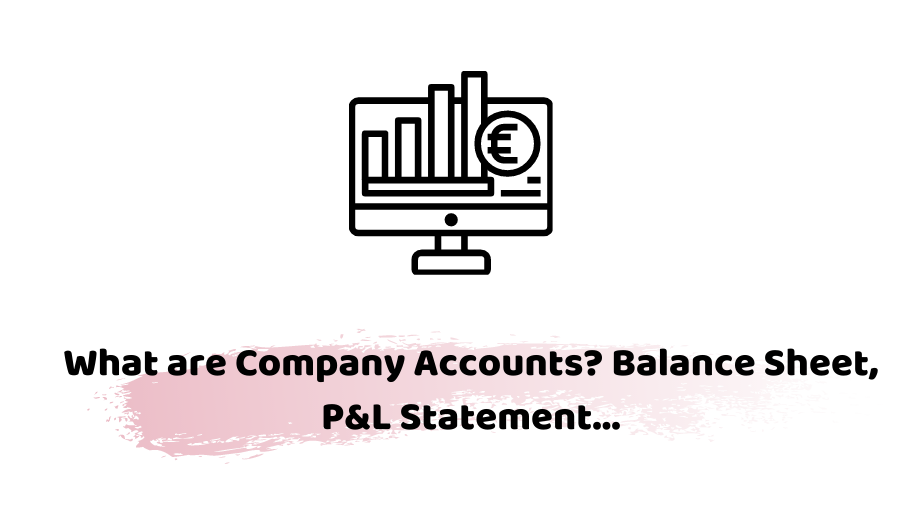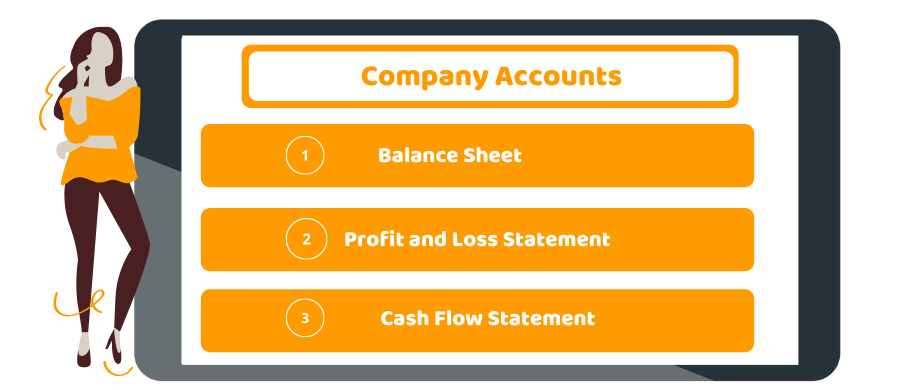If you’ve just started your business venture or you’re already running a business, understanding company accounts is crucial. If you lack financial knowledge, the financial terminologies of company accounts can be daunting to understand. For this reason, you need to be well versed with these terminologies to know where your business stands and how can you take it to the next level. Therefore, this blog will help you to explore what are company accounts and how they’re important for your business.
Accotax is an accounting firm that will help your business thrive. Contact us for affordable accounting, taxation and payroll services!
What are Company Accounts?
The company accounts are the annual overview of the financial activities of a business. You might be wondering why we prepare them? We prepare them for HMRC and Companies House every year and they consist of:
- Profit and Loss Statement
- Balance Sheet
- Cash Flow Statement
Let’s see what is a Balance Sheet.
Balance Sheet
A balance sheet is a financial statement that provides a quick insight into a company’s assets, liabilities and shareholder’s equity in a certain period. In addition, it shows the financial health of your business at the time accounts were generated and compares what a business owes and owns. In fact, the balance sheet mainly focuses don’t two categories:
Assets are the things that a company owns and from which the company generates profits. There are two main types of assets:
Fixed assets: These assets are long-term assets like land, factories and vehicles, etc.
Current assets: These are the things that have a shorter life span like cash in the bank, stock items and petty cash.
Liabilities are the obligations that a business owes. It includes debt, etc. It has two main types:
Long-term Liabilities: These liabilities are the one that needs to be repaid in more than one year.
Current liabilities: Current liabilities are due to be repaid within the time frame of one year.
Now if you are looking for a method to know the worth of your business. You simply need to calculate its net assets value (NAV)
Net Assets Value= (Fixed and Current Assets) – (Total Liabilities)
The Profit and Loss Statement
A profit and loss statement is used to record the performance of a business in a certain period. Moreover, with this statement, you can view the total revenue and expenses of your business in a single financial period.
Accotax has a team of qualified accountants, bookkeepers and tax experts in London to take your business to the next level. Get in Touch with us now!
Depreciation and Amortisation
Depreciation and amortisation indicate the decreased value of the business assets like vehicles and buildings, etc. Let’s have a quick insight into each:
Depreciation
With time the value of the assets decrease. So, depreciation indicates the falling value of the assets like buildings and vehicles, etc. In accounting, it shows how the value of a business has decreased over time.
Amortisation
It works similarly to depreciation but it shows the value devaluation of intangible assets like intellectual property, patents, branding, etc.
Cash Flow Statement
The cash flow statement shows the cash incomings and outgoings of a business over a financial year. It is the amount of company that comes in and goes out of a business in a year. The cash flow statement breaks down cash into three categories:
- Operating activities: It indicates how much money comes into a business by selling goods and services, minus the amount needed to make and sell the product and services
- Investing activities: This shows how much money/cash is invested on capital expenditure such as new equipment
- Financing activities: It shows how much money has been used for outside financing activities like cash raised through selling stock
Remember that a negative cash flow is never always a bad sign for a company like if a company is investing in IT equipment it could be a positive long term sign of development.
However, if your business is having consecutively negative cash flow, it needs to be sorted out.
Quick Sum Up
Hopefully, you have got enough information on what are company accounts and how they are important for your business. So whether you’re a business owner, investor or entrepreneur, you need to have in-depth knowledge of company accounts to help your business thrive. Although, you can prepare and file your company accounts yourself. However, if you lack sufficient knowledge of accounts and finance, it is advisable to employ an accountant for getting the optimal benefit.
Save your time, money and stress by getting in touch with our Accountants to prepare and file your accounts in the perfect way. Get an instant quote now!
Disclaimer: This blog provides general information on the company accounts.






















































